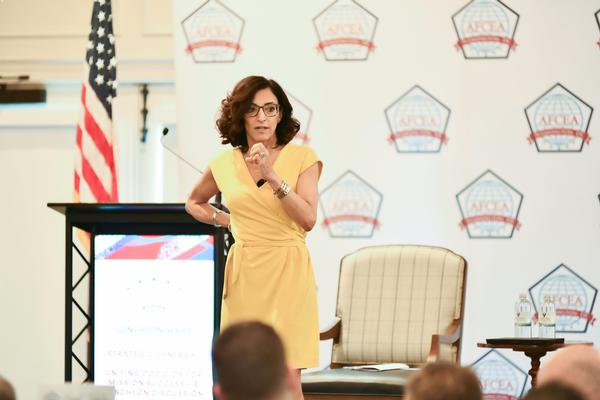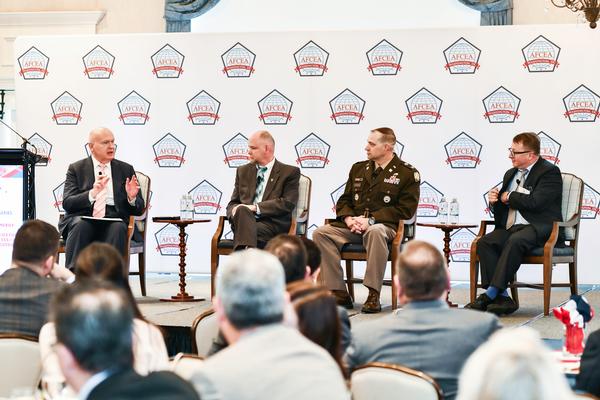In April, the chapter had the honor of hosting Katie Arrington, previously performing the duties of the Department of Defense (DOD) chief information officer, at the Army Navy Country Club in Arlington, Virginia. Addressing a packed audience of industry and government leaders, Arrington delivered a clear and urgent message: the Department-and its partners-must break from the status quo to secure tomorrow's mission against today's rapidly evolving threats.
Arrington outlined several critical priorities shaping the DOD's future technology posture. She emphasized that zero trust is mandatory, not optional, with full compliance expected by 2027. Cybersecurity Maturity Model Certification (CMMC) must be embraced as a cultural shift, not just a compliance checklist. Legacy processes like Risk Management Framework and traditional authority to operate are being replaced by real-time monitoring platforms like EMAS, powered by AI tools. New initiatives such as SWIFT (Software Fast Track) are cutting acquisition timelines, while an urgent call for data standardization-across cloud, identity management and applications-underscored the need to turn raw information into actionable advantage.
The defense industrial base, she stressed, is not just a vendor network but an essential extension of the warfighter's arsenal. Ethical and resilient supply chains, streamlined bureaucracy and a laser focus on mission impact over administrative hurdles are central to the DOD's transformation efforts. Arrington closed with a powerful reminder: "We don't fight wars alone-we fight them with you."
During the panel discussion with moderator Francis Rose of Fed Gov Today, the three panelists expanded on this conversation.
Tom Sasala, executive director, Enterprise Cloud Management Agency with the U.S. Army, stated that talent management is currently the most significant obstacle, highlighting the urgent need for flexibility in the Army/ECMA's approach to sourcing and onboarding skilled personnel. "Knowing how to do the job when you start versus figuring it out over the first six to 12 months is important." He also stressed the importance of having an admirable organizational culture and how that would help attract qualified candidates.
Col. Jeffrey Strauss, USA, deputy for Programs Acquisitions at Defense Information Systems Agency (DISA), stated that industry can really help DISA with effectively addressing the challenge of technical debt, which is currently a major barrier to adopting modern technology at DISA. He asked industry to help DISA navigate this through a planned and phased approach rather than attempting sweeping "big bang" solutions.
Jeffery Hurley, director, Information Command, Control, Communications and Computers (IC4), for Headquarters Marine Corps Deputy Commandant, Information, also mentioned that technical debt remains a challenge, but foot stopped the importance of actively moving toward future technologies while addressing the tech debt.
The chapter remains committed to fostering the collaboration, innovation and speed Arrington and the panelists called for. We encourage industry and government partners alike to engage in these initiatives, embrace a zero-trust mindset and work side-by-side with the department to ensure mission success.
|

Pictured (l-r) are Donald Murphy, chapter board member; Becci DeFrank, chapter president; Panelist Jeffery A. Hurley, U.S. Marines, panelist; Katie Arrington, Department of Defense, keynote speaker; Col. Jeff Strauss, USA, Defense Information Systems Agency, panelists; Indira Donegan, chapter board member; Thomas Sasala, U.S. Army, panelist; and Mike Taylor, April Luncheon lead, at the April event. |





